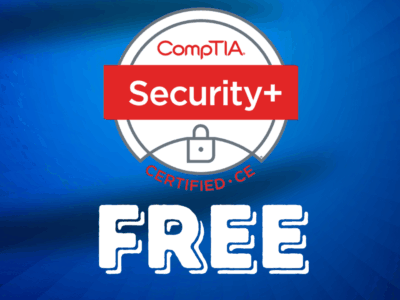Recertification is a crucial part of maintaining cybersecurity certifications
Recertification is a crucial part of maintaining cybersecurity certifications, ensuring that professionals stay current with the evolving field. Different certifications have varying requirements for recertification, which might include earning Continuing Education (CE) credits, retaking exams, or participating in relevant professional activities. Here’s an overview of the recertification requirements for the certifications mentioned earlier:
CompTIA Certifications (Security+, ITF+, CySA+)
Recertification Period: 3 years
Requirements:
Continuing Education (CE) Credits: Earn a specific number of CEUs (Continuing Education Units) through various activities such as taking additional courses, attending webinars, publishing articles, or participating in professional events.
Renewal Fee: Pay a renewal fee (approximately $50 USD per year, depending on the certification).
Alternative: Retake the certification exam before the certification expires.
Certified in Cybersecurity (CC) by (ISC)²
Recertification Period: 3 years
Requirements:
Continuing Professional Education (CPE) Credits: Earn and submit 45 CPE credits over the 3-year certification cycle. CPE activities can include attending courses, webinars, or conferences, or participating in other professional development activities.
Annual Maintenance Fee (AMF): Pay an AMF of $50 USD.
Microsoft Certified: Security, Compliance, and Identity Fundamentals
Recertification Period: Currently, Microsoft Fundamentals certifications do not expire, so no recertification is needed.
Note: If this policy changes, it would likely involve passing a renewal exam or earning CE credits, similar to other Microsoft certifications.
Certified Ethical Hacker (CEH) – Practical
Recertification Period: 3 years
Requirements:
Continuing Education (EC-Council ECE Credits): Earn 120 ECE (Educational Credits) over 3 years. This can be done through additional training, attending webinars, conferences, or other approved activities.
Annual Membership Fee: Pay an annual maintenance fee of $80 USD.
Alternative: Retake the certification exam to maintain your status.
Google Cybersecurity Professional Certificate
Recertification Period: This certification, offered via Coursera, is considered more of a certificate program rather than a certification, so there is no official recertification requirement. However, keeping up with new developments in the field is recommended.
Note: If Google or Coursera changes this, the requirements would likely involve updating your skills through new courses or assessments.
Cisco Certified CyberOps Associate
Recertification Period: 3 years
Requirements:
Continuing Education: Earn CE credits by attending Cisco Live events, completing Cisco Learning Network courses, or engaging in other approved activities.
Alternative: Pass a recertification exam or earn a higher-level Cisco certification.
GIAC Information Security Fundamentals (GISF)
Recertification Period: 4 years
Requirements:
Continuing Professional Experience: Earn 36 CPE credits over 4 years. CPEs can be earned through professional activities, training, writing, and research.
Alternative: Retake the certification exam or obtain another GIAC certification.
EC-Council Certified Secure Computer User (CSCU)
Recertification Period: 3 years
Requirements:
Continuing Education (ECE) Credits: Earn 20 ECE credits each year over the 3-year period.
Annual Membership Fee: Pay an annual fee of $20 USD.
Alternative: Retake the certification exam.
Key Points:
Continuing Education Credits (CPEs/ECEs): Most certifications require earning a set number of credits through professional development activities.
Fees: Many certifications require an annual or triennial fee to maintain active status.
Exam Retake Option: If you do not wish to pursue CPEs, you can often renew your certification by retaking the exam.
Staying on top of recertification ensures your skills remain relevant and demonstrates your commitment to ongoing professional development in the cybersecurity field.
Enhance Your Expertise with Additional Resources
To further your cybersecurity skills, consider these essential courses and exam resources:
- Join the Practical Ethical Hacking Membership Levels for continuous updates and advanced resources to stay ahead in the field.
- Explore In-Depth Training with the Nmap course, offering hands-on experience and a thorough understanding of network scanning techniques.
- Prepare Effectively with the CompTIA Security+ SY0-701 Free Practice Exam to assess your readiness and identify areas for improvement.
- Further Your Expertise by enrolling in the CompTIA Security+ SY0-701 course, which provides comprehensive training and preparation for the Security+ certification.
- Stay Updated and Inspired by following Cybersecurity and Practical Ethical Hacker Courses on YouTube for the latest insights and practical tips in cybersecurity.


